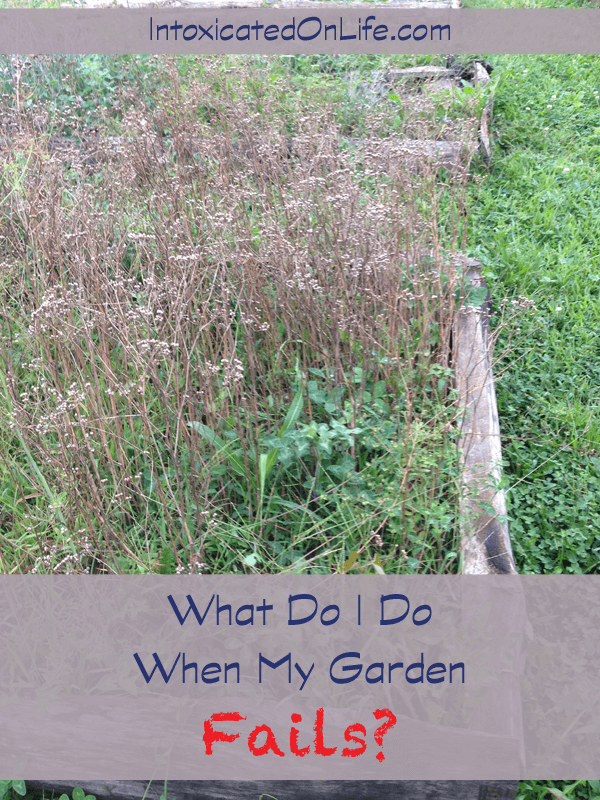It’s September and the summer gardening season is coming to a close. Was your garden wildly successful for you this year? Or are you like me and chalking this year up to a learning experience?

As frustrating as that was, God is still in control and He still blesses us unexpectedly. We were blessed to discover several “volunteer” tomato plants pop up in our garden. One was even my favorite yellow pear snacking tomato!
So what do you do when your hard work doesn’t pay off?
1. Praise God the Creator and Provider.
Chances are high that you didn’t starve to death because your garden failed. There was a time in history (like all of it up until about 100 years ago) when that was a very real reality. No matter how frustrating it is that our vision for our garden didn’t come to fruition, we should remember to be thankful to the God who provides the food we do eat.
Bottom line: Be thankful for what you do have.
2. Analyze the situation.
Why did your garden fail? Was it pests? Did you have an especially dry summer? Or did you simply not have (or take) the time to maintain your garden? You need to know why your garden failed. Once you know what went wrong, then you can take steps to fix it.
Bottom line: Understanding the problem is the first part of the solution.
3. Make changes.
Once you know what went wrong, then you need to decide how you are going to fix it. Would better fencing keep your pests out? Would a rainwater collection barrel make watering your garden in dry times easier? Or are you simply in an especially busy season of life and choosing to support your local farmer’s market next year? This is a perfectly acceptable solution, too.
Bottom line: Don’t let it defeat you. Learn from it, and it’s not a failure.
4. Write it all down.
None of this matters if you don’t remember it next spring. If you haven’t already started a garden journal, do it now. Write down what you did, the successes you did have, the failures, what you would do differently, and things that would make the job easier for you.
Bottom line: Don’t depend on your memory.
5. Try again next year.
A failure one year…or two or three…does not mean total failure. Gardening is trial and error. You will learn from your mistakes just as much as your successes. Try a new variety of a failed plant or plant some completely different vegetables. It’s up to you. Your garden is an empty palette waiting for you to get creative.
Bottom line: Don’t give up!



You too? It feels better knowing we’re not alone. It does often feel like we wasted time. But yes, we did learn – a lot. Great tips to keep it positive – thanks!
No problem, glad to help others with my mess. 😉
Our garden was awful, too. We had a very cold and wet summer along Lake Michigan. Not much we can do to correct that. But it is true, we did not starve.
Got to find that silver lining sometimes. 🙂 Gardening isn’t for those who need to control every detail or those who want to overcome that tendency…like myself. 😉